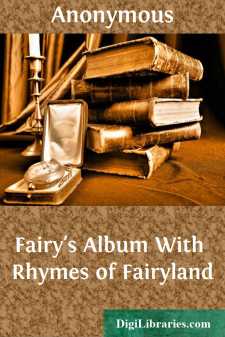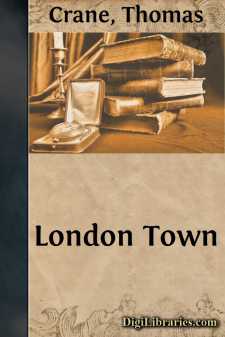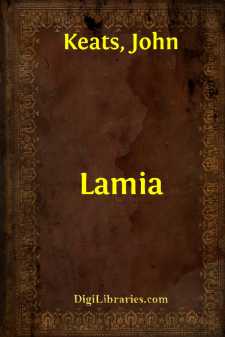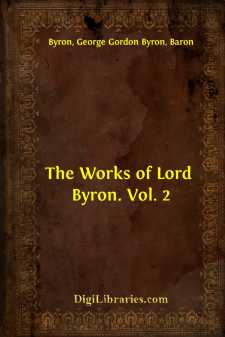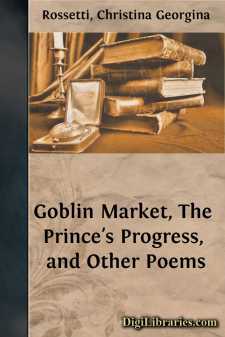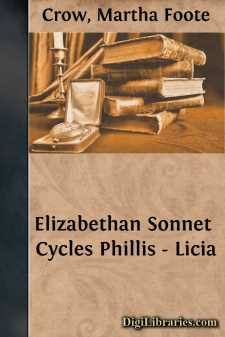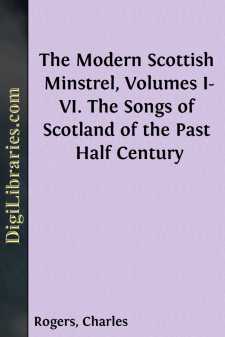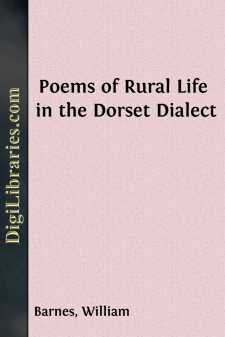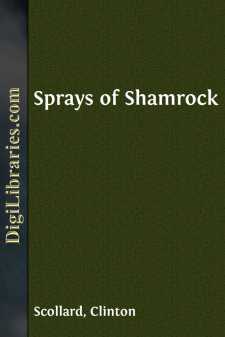Poetry
- American 96
- Ancient, Classical & Medieval 41
- Asian 15
- Australian & Oceanian 11
- Canadian 11
- Caribbean & Latin American 5
- Children's Poetry & Nursery rhymes 51
- Continental European 11
- English, Irish, Scottish, Welsh
- General 483
- Inspirational & Religious 7
- Middle Eastern 3
English, Irish, Scottish, Welsh Books
Sort by:
by:
Anonymous
This is Fairy's Album.This is Fairy, bright as Spring,Loving every living thingWith a love so sweet and true,That all creatures love her too!This is Fairy, bright as Spring,In Fairy's Album. This is Fairy, wondrous wise,Sunshine laughing in her eyes,Who will prattle on for hoursTo the brooks and trees and flowers,To the birds and butterflies,To all creatures 'neath the...
more...
by:
Thomas Crane
One foot up and one foot downAnd that's the way to— [02] [03]C,B,W,WITL, ,WFI:C,—SP',,U, O'. [04] [05] [06] [07]CONTENTSPageTHE TOWER OF LONDON, , ,THE OMNIBUSTHE PENNY-ICE MANCOVENT GARDEN,THE PENNY-TOY MANTHE ORANGE GIRLTHE FIRST OF MAYST. JAMES' PARK,WESTMINSTER ABBEY, ,CHARITY GIRLSTHE BRITISH MUSEUM, ,THE UNDERGROUND RAILWAY,THE ZOOLOGICAL GARDENS, ,THE MILK WOMANTHE MUFFIN...
more...
by:
John Keats
Part 1 Upon a time, before the faery broodsDrove Nymph and Satyr from the prosperous woods,Before King Oberon's bright diadem,Sceptre, and mantle, clasp'd with dewy gem,Frighted away the Dryads and the FaunsFrom rushes green, and brakes, and cowslip'd lawns,The ever-smitten Hermes empty leftHis golden throne, bent warm on amorous theft:From high Olympus had he stolen light,On this side...
more...
INTRODUCTION TOTHE FIRST AND SECOND CANTOS OF CHILDE HAROLD. The First Canto of Childe Harold was begun at Janina, in Albania, October 31, 1809, and the Second Canto was finished at Smyrna, March 28, 1810. The dates were duly recorded on the MS.; but in none of the letters which Byron wrote to his mother and his friends from the East does he mention or allude to the composition or existence of such a...
more...
GOBLIN MARKET Morning and eveningMaids heard the goblins cry:'Come buy our orchard fruits,Come buy, come buy:Apples and quinces,Lemons and oranges,Plump unpecked cherries,Melons and raspberries,Bloom-down-cheeked peaches,Swart-headed mulberries, 10Wild free-born cranberries,Crab-apples, dewberries,Pine-apples, blackberries,Apricots, strawberries;—All ripe togetherIn summer weather,—Morns that...
more...
INTRODUCTION The last decade of the sixteenth century was marked by an outburst of sonneteering. To devotees of the sonnet, who find in that poetic form the moat perfect vehicle that has ever been devised for the expression of a single importunate emotion, it will not seem strange that at the threshold of a literary period whose characteristic note is the most intense personality, the instinct of poets...
more...
by:
Charles Rogers
PREFACE. Scotland has probably produced a more patriotic and more extended minstrelsy than any other country in the world. Those Caledonian harp-strains, styled by Sir Walter Scott "gems of our own mountains," have frequently been gathered into caskets of national song, but have never been stored in any complete cabinet; while no attempt has been made, at least on an ample scale, to adapt, by...
more...
by:
William Barnes
THE SPRING. When wintry weather's all a-done, An' brooks do sparkle in the zun, An' nâisy-buildèn rooks do vlee Wi' sticks toward their elem tree; When birds do zing, an' we can zee Upon the boughs the buds o' spring,— Then I'm as happy as a king, A-vield wi' health an' zunsheen. Vor then the cowslip's hangèn flow'r A-wetted in the zunny...
more...
by:
Clinton Scollard
[p 3] MUCKROSStnight there came unto MacCarthy MoreA hooded vision with a voice that said,“Go thou straightway and raise a house to GodUpon the spot where stands the Rock of Song!”So with the golden lifting of the dawnUpsprang the chieftain and loud called his kerns,And bade them seek the Rock. For many a dayThey roved the sweeping meads and fens and fellsIn fruitless search, and ever forth...
more...
O MAY I JOIN THE CHOIR INVISIBLE! O may I join the choir invisibleOf those immortal dead who live againIn minds made better by their presence; liveIn pulses stirred to generosity,In deeds of daring rectitude, in scornOf miserable aims that end with self,In thoughts sublime that pierce the night like stars,And with their mild persistence urge men’s mindsTo vaster issues. So to live is heaven:To...
more...


